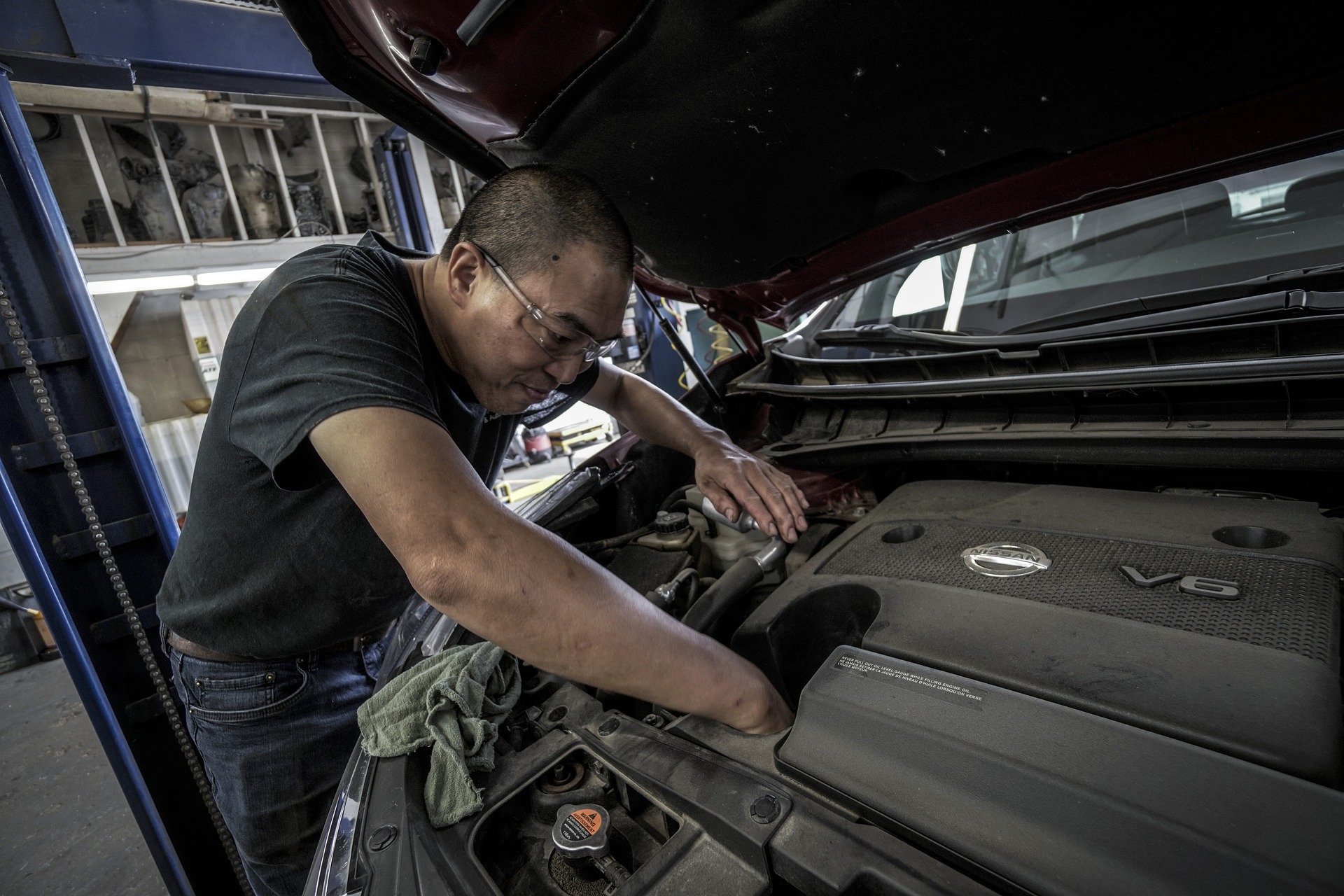You’ve completed your research, taken vehicles for test drives, and considered your financing options. You’re ready to purchase a used car. Securing the vehicle’s title, registering it in your name, getting the car inspected, and obtaining vehicle insurance are some of the many tasks you’ll need to complete to make your new used car your own.
What Should You Do Immediately After Buying a Used Car?

After purchasing your used car, you’ll need to complete some paperwork to transfer the vehicle to you as the new owner.
Bill of Sale
You’ll receive a bill of sale after you purchase the car. The bill of sale serves as a receipt for your purchase. It contains the names of the buyer and seller, purchase price, and applicable fees, taxes, as well as related terms. Keep this bill of sale with other vehicle records in a secure place at home.
Insurance
Before you drive your used car off the dealer’s lot, you’ll need to insure your vehicle.
Obtain the car’s VIN and send it to your insurer so that you have the correct coverage in place before you complete your vehicle’s purchase. Many dealers will request to see proof of insurance before proceeding with a vehicle purchase. Securing an insurance plan for your car as early in the buying process as possible can promote a smooth sale and help you with budgeting your vehicle expenses.
Talk with your insurer about your insurance coverage options. The following factors can contribute to the cost of your vehicle’s insurance:
- The deductible.
- The type of vehicle you’re purchasing.
- The vehicle’s value.
- Your age.
- Your credit score.
- Your home location.
Additionally, having a good driving record, owning a home, and owning multiple vehicles can help you qualify for vehicle insurance discounts.
Drivers must carry minimum liability insurance with coverage up to $25,000 for each injury per accident. You can purchase optional insurance coverage, such as collision, comprehensive, protection against uninsured motorists, and medical payments. Consult with your insurer to determine the best coverage for your needs.
If you’re financing your used vehicle, your state may require you to hold liability, comprehensive, and collision coverage until you’ve paid off your vehicle loan.
Temporary Tags
Many dealerships will offer you temporary 30-day tags to cover the time between purchasing the vehicle and registering it with your state’s department of motor vehicles. This temporary registration accompanies the vehicle’s insurance and title documents. Place the temporary tags on your vehicle until you receive your permanent license plates.
Title Transfer and Vehicle Registration
When you buy a used car from a dealership, the dealer will assist you with the title transfer and vehicle registration.
Before you register the car in your name, you’ll need the following items:
- Proof of address.
- Proof of insurance.
- Several forms of ID.
- The vehicle title in your name.
- Vehicle emissions test and safety inspection.
Consult your state’s department of motor vehicles to confirm vehicle registration requirements and any applicable fees and taxes. After you receive your vehicle’s registration information, place it inside your car, such as the glove box.
Before you transfer the title, you’ll need the following documents:
- Dealership invoice and bill of sale for the vehicle.
- The current title (if the vehicle has been previously owned and titled).
- The Manufacturer’s Certificate of Origin (if the vehicle has not received a title).
If you plan to finance your new car, the dealer and the lender will hold the vehicle’s title until you pay off the loan. Once you’ve fully paid the loan on the vehicle, the title will be transferred to your name and mailed to you. Once you receive the title, keep it in a safe place in your home, not in your vehicle.
If you’re not financing, the dealer will handle the paperwork to transfer the car’s title to your name.
Should You Service Your Used Car After Purchasing It?
When dealerships acquire used cars, they inspect the vehicles and address required maintenance items before placing them on their lots for sale.
Upon purchasing your vehicle, you can request the dealer’s service department to recheck the following items before you drive the vehicle off the lot:
- Air and oil filters.
- Brakes and brake pads.
- Condition of and proper inflation for the tires.
- Fluid levels in the engine.
Regardless of the age of the vehicle you purchase, regular maintenance and servicing are necessary to keep your used car in the best operating condition possible. Create a schedule so that you can keep on top of regular vehicle maintenance tasks, such as oil and oil filter changes and tire rotations. Check with your state’s department of motor vehicles to determine whether your vehicle requires annual overall maintenance checks and emissions inspections.

How Can You Get Familiar With Your Vehicle’s Controls?
Taking your car for a test drive at the dealership is one of the best ways to get familiar with a vehicle’s controls and operations. Once you’ve purchased the vehicle and have brought it home, take some time to read the owner’s manual. Inside the owner’s manual, you’ll find useful information such as your vehicle’s ideal gas grade, proper tire pressure, the meanings behind various indicators on the dashboard, and important details related to your vehicle’s manufacturer’s warranty.
In addition to reviewing the printed owner’s manual, visit the vehicle manufacturer’s website. Consult other reputable internet sources for information about your car and videos demonstrating your vehicle’s features. Drive your new car around your neighborhood and your city so that you can explore these features for yourself when you’re behind the wheel.
Finally, don’t forget to give your new vehicle a name. After all, it’s now a member of your family.
Buy Used Cars Online or In Person in Grand Forks
If you’re looking for a reliable used car in Grand Forks, North Dakota, visit Rydell Outlet Center. Our selection of used cars, trucks, and SUVs is tough to beat. We’re dedicated to delivering the Rydell brand promises of low pricing, a no-pressure sales experience, competitive financing, dependable service, and full peace of mind for your purchase.
Call us at 701-757-6140, contact us through our website, or visit our used vehicle showroom at 5500 Gateway Drive in Grand Forks.


